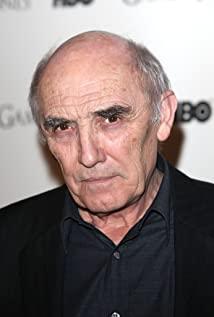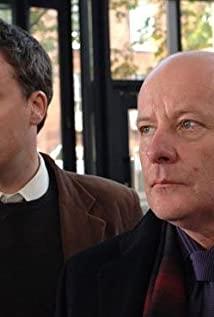Release: 2009-9-24 08:16 | Author: People.com | Source: People.com | View: 38 times
13 years ago, Pfizer, the world's largest pharmaceutical company, used Nigerian children's trial drugs, 13 years later, Pfizer made its own The behavior paid a price. With a compensation of 75 million US dollars, Pfizer ended the scandal of "taking other people's children to test drugs".
In 1996, meningitis broke out in Africa, and Pfizer conducted a trial of a new trofen drug in the Kano region of Nigeria. However, three weeks later, this new drug "good for most sick children" caused 11 out of 100 children to die, and the remaining 181 children became disabled. Some are blind, some are deaf, some have brain damage, and some are paralyzed. At this moment, the Pfizer medical team quietly withdrew, leaving no record of this drug experiment in Nigeria.
How is the US$75 million compensation weighed against the lives and health of 200 African children? Why is this kind of drugs banned in the United States and the European Union, but it appears in African countries with weak laws and poor medical conditions? As an industry giant, behind the exposure of the Pfizer scandal, can other multinational pharmaceutical companies stand alone?
The two sides debated
Allegation 1: Pfizer conducted drug trials on children in Nigeria.
Pfizer: Telofen was in the final development stage at that time, and clinical trials with 5000 patients had already been carried out before. Pfizer is in Nigeria only to treat illnesses and is ethical.
Allegation 2: Pfizer used terprofen oral tablets that had never been tested on Nigerian children, not the injections it had approved in the United States, and had serious side effects.
Pfizer: The reason for changing the "injection to tablets" is because of the severe AIDS situation in Africa. The use of injection therapy may cause the patient to be infected with AIDS. They specially produced trofen tablets for Africa, which is precisely the embodiment of their ethics.
However, the "Washington Post" investigation found that the reason why Pfizer used oral pills was to observe whether the digestive juice would affect the efficacy of the drug.
Allegation 3: The child suffered deafness, paralysis and even died after receiving treatment, and trofen is to blame.
Pfizer: When it first entered the hospital, the medical team admitted mainly mild patients. With the spread of the epidemic, the number of severely ill patients has increased, and the deaths of some patients are not abnormal. Symptoms such as deafness are the sequelae of meningitis. Pfizer believes that these alone cannot determine the side effects of terprofen.
However, a Pfizer internal document obtained by The Washington Post showed that the test results showed that trofen does have fatal side effects.
Allegation 4: Pfizer did not obtain the consent of patients and family members when conducting drug trials.
Pfizer: Because most local residents can't write. Therefore, verbal contracts and even tacit consent have become the only basis for medical services between patients.
However, Pfizer never gave an explanation as to why the parents of the children were forbidden to visit their children.
Expert analysis: "
Pharmaceutical companies are rarely prosecuted, and the claim procedure is not simple."
Yu Guoqing, an associate researcher at the Institute of West Asia and Africa of the Academy of Social Sciences, analyzed this morning that the practice of using living humans to test drugs is widespread among large Western pharmaceutical companies.
As a new drug usually takes several years or even longer before it is officially put on the market, some large Western pharmaceutical companies often look for patients in developing countries for clinical trials.
Such cases have occurred in the past, but very few victims have tried to sue pharmaceutical companies through legal means. With the increasing attention of the international community to human rights issues, the national government of the victim in this case has decided to rely on legal procedures. Seek justice for the victimized child.
However, it is expected that the legal procedures in this case will not be so simple, because complicated international law and medical ethics are involved.
On the other hand, Pfizer Pharmaceuticals is also likely to defend itself on the grounds that new drug trials can help alleviate the pain of child patients, reduce the financial burden of poor families, and the need for new drug development and marketing.
Link
Pfizer drug trial event
In January 1996, Pfizer's new antibiotic drug, terprofen, was applying for approval. To speed up the approval process, Pfizer hopes to prove the efficacy of this new drug as soon as possible.
In February 1996, the Pfizer medical team appeared at the Kano Infectious Disease Hospital in northern Nigeria.
In 1997, the United States approved the use of the antibiotic "Tprofen" for adults. Later reports showed that this drug can even cause death. In 1999, a ban was imposed on this drug. Related drugs are also banned in Europe.
In December 2000, the US "Washington Post" published a series of investigative reports called "The Balance of Profit and Life" after a year-long investigation, revealing that some pharmaceutical companies have gone to developing countries for cheap drugs. Trial scandal. Nigeria is included in the list of test countries.
On May 5, 2006, the "Washington Post" published a copy of a secret investigation report. The report stated that in 1996 Pfizer had arranged for local children and infants to take unauthorized antibiotics without the authorization of the Nigerian government. Trofen" and caused the deaths of 11 children.
In May 2007, 11 years later, the Kano state government of Nigeria collected evidence and sued Pfizer. (Fan Rui)
Explanation of terms
Pfizer
Pfizer is an American pharmaceutical company based on research and development with a history of more than 150 years. Headquartered in New York, it currently has branches in China.
Pfizer includes three business areas: medical care, animal health, and consumer health products; the best-selling products include "Lipitor", "Zoloft" and "Xisumi".
Nigerian children with meningitis
TAG: Children's drug trials
http://www.ngocn.org/?action-viewnews-itemid-66529
This article is from NGOCN, please keep this link! NGO Development Exchange Network: http://www.ngocn.org
View more about The Constant Gardener reviews











